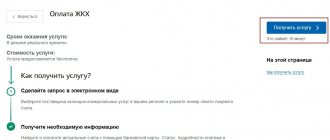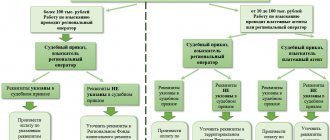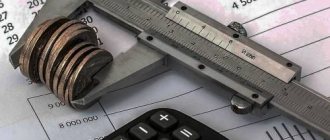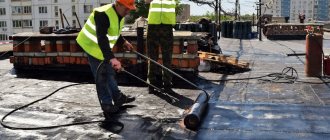Home / Housing / Justice
Back
Published: 05/30/2021
Reading time: 15 min
1
362
The new rights and obligations of citizens are regulated by federal and regional laws. However, the population does not always approve of the introduced norms and acts. In view of this, residents are looking for opportunities to protest the provisions. Similar disputes arose around Federal Law No. 271, on the basis of which apartment owners must pay receipts for major repairs of apartment buildings every month. After a series of proceedings in the case, the Supreme Court's decision on overhaul finally put an end to these disagreements.
FREE CONSULTATION WITH A LAWYER
Tel.
+7 (800) 302-65-54 Free in Russia
Where should the funds collected for major repairs go?
- 1 Legislative regulation 1.1 Current laws
- 1.2 Legality of contributions for major repairs - to pay or not 1.2.1 Review of the Resolution of the Constitutional Court of the Russian Federation dated April 12, 2016 No. 10-P
- 1.2.2 Review of the Ruling of the Supreme Court of the Russian Federation dated 06/04/2014 No. 57-APG14-2
- 1.2.3 Review of the Ruling of the Supreme Court of the Russian Federation dated July 23, 2014 No. 13-APG14-23
- 1.2.4 Review of the Determination of the Judicial Collegium for Civil Cases of the Supreme Court of the Russian Federation dated March 12, 2018 No. 36-KG17-14
- 1.2.5 Conclusion about the need to pay for major repairs
- 3.1 Differences between overhaul and ongoing activities - comparative analysis
Legislative regulation
It is noteworthy that money for major repairs does not mean payment for services for its implementation. Funds received from an individual to the operator’s account are transferred to a third party after being credited. At the same time, with regard to contributions under this item of expenditure to the Housing Code of Russia (as amended in 2021), a separate procedure has been established for their disposal.
Current laws
Before analyzing the Resolution of the Supreme Court of the Russian Federation, it is necessary to consider the laws that answer the question - is payment for major repairs not mandatory according to the decision of the Supreme Court?
The current regulations include the following aspects:
- The amount of contributions transferred to the Capital Repair Fund or to a separate MKD account is calculated based on the area of residential real estate - Art. No. 158 Residential complex of Russia.
- Tenants of municipal premises should not transfer funds under this expense item. This responsibility is assigned to apartment owners - Art. No. 154 Residential Complex of the Russian Federation.
- If a plot of land is withdrawn from an apartment building for the needs of the region or the Federation, then the money collected from the owners of the apartment building must be returned in full. Moreover, if the owner of the property changes, then the current owner receives funds for the previous tenant - Art. No. 174 Residential complex of Russia.
- At the legislative level, limits are set on the use of money from the Fund, which was previously generated at the expense of property owners. Payments may be transferred only for a specific list of services carried out to carry out major repairs, close loan agreements opened for the performance of work - Art. No. 174 part No. 1.
- In Art. No. 179 of the Russian Housing Code also states that when initiating legal proceedings against the Regional Operator, it is not allowed to seize funds received from property owners as contributions for major repairs.
- If the Fund in the subject is declared bankrupt, then all the money received from the owners of MKD apartments cannot be included in the mass for auction - Art. No. 179 part No. 5 Residential complex of Russia.
Watch the video: “Decision of the Constitutional Court on the legality of charging fees for major repairs.”
Thus, the funds transferred to the Fund do not constitute payment for repairs. These contributions are converted into payment only upon the occurrence of circumstances in which major repairs are carried out.
Legality of contributions for major repairs - to pay or not
Apartment owners ask lawyers whether payments for major repairs are required. According to the decision of the Supreme Court, which is based on Federal Law No. 7 (with current amendments and additions of 2020), as well as a number of other legal acts, it notes that these contributions are charged to all home owners. Exceptions are persons who have appropriate preferences.
The legality of paying funds to the Funds is indicated by Federal Law No. 7 in Article No. 7 regarding non-profit organizations:
- Part No. 1 prescribes the definition of a Regional Operator;
- Part No. 4 establishes obligations to pay contributions, the amount of which is fixed by municipal and/or federal authorities.
At the same time, a number of legal provisions indicate the incurrence of costs for major repairs. For example, Article No. 169 of the Housing Code of Russia contains that contributions are a direct debt, in which owners must pay receipts every month.
Accordingly, there is not a word about voluntariness in this context. However, residents of an apartment building have the right to choose the procedure for collecting money - to an account with a regional operator or to open a separate apartment building.
Review of the Resolution of the Constitutional Court of the Russian Federation dated April 12, 2016 No. 10-P
The resolution of the Constitutional Court of the Russian Federation dated April 12, 2016 No. 10-P indicates the legality of charging fees under the article major repairs. All persons approved in current regulations are required to make such contributions. The exception is citizens who have preferences at the municipal level.
The clarifications regarding the payment of receipts for major repairs have finally come to an end - the demands to repay the debt, as well as the timeliness of financial support, are legal.
In December 2012, Federal Law No. 271 came into force, making adjustments to a number of legislative acts, including those on the overhaul of apartment buildings. Responsibilities for bearing the financial burden for carrying out restoration measures are assigned to the owners of apartment buildings. Until 2012, this function was performed by housing and communal services.
Review of the Ruling of the Supreme Court of the Russian Federation dated June 4, 2014 No. 57-APG14-2
The capital repair program and the procedure for its implementation.
For several years, information has been circulated on the Internet that allegedly the Supreme Court of Russia, in a resolution dated June 4, 2014, allowed the possibility of not paying the bill for major repairs. However, such opinions and conclusions are invalid and often mislead ordinary citizens.
The ruling of the Supreme Court of the Russian Federation dated June 4, 2014 No. 57-APG14-2 clearly states the refusal to satisfy the recognition of Federal Law No. 173 of the Belgorod Region. According to the plaintiffs, this bill contradicts federal provisions on contributions for major repairs to apartment buildings.
However, the Plenum of the Russian Armed Forces asserts that this legal act does not entail a violation of interests, since it does not make it mandatory for property owners to pay. It is noteworthy that this particular quote became a stumbling block and gave rise to many rumors on the Internet.
Review of the Ruling of the Supreme Court of the Russian Federation dated July 23, 2014 No. 13-APG14-23
The ruling of the Supreme Court of the Russian Federation dated July 23, 2014 No. 13-APG14-23 considers another case in the Tambov region. The plaintiff argued that owners of privatized real estate are not required to bear the burden of financial expenses for major repairs. The parties relied in their arguments on the agreement, within the framework of which the share in the common property of each apartment was not specified.
Additionally, the statement stated that citizens from privatized properties are not the owners of the common property of MKD, which means that the requirement to pay contributions is a contradiction of Art. No. 38 part No. 2 Residential complex of Russia.
Despite the arguments of the plaintiff, the Court explained to the parties in the case that these demands cannot be satisfied.
Review of the Determination of the Judicial Collegium for Civil Cases of the Supreme Court of the Russian Federation dated March 12, 2018 No. 36-KG17-14
The ruling of the Judicial Collegium for Civil Cases of the Supreme Court of the Russian Federation dated March 12, 2018 No. 35-KG17-14 included a citizen who has preferences in paying for utility services. An individual has a disability of the 2nd group, petitioned for the cancellation of a previously issued decision on the deprivation of benefits in the amount of 50% on payments for housing and communal services, including major repairs.
After considering the case, the panel of judges left the first decision unchanged and ordered the citizen to pay the debt in full. However, the plaintiff filed an appeal, because at the time the case was initiated against her, the arrears for utilities were closed. After lengthy legal proceedings and proceedings, the court granted the party’s request and canceled the decisions of the 1st and 2nd instances.
Conclusion on the need to pay for major repairs
The reviews discussed above suggest that contributions for major repairs may not be paid by decision of the Constitutional Court, provided that the consumer has benefits.
Thus, the information about optional payments is refuted, since:
- The Supreme Court of the Russian Federation did not provide for cancellation.
- The activities of the Funds in the constituent entities of the Russian Federation are legal.
- It is incorrect to consider monetary transactions transferred for major repairs as payment for services under this article.
In addition, it is necessary to highlight the decision of the Constitutional Court on major repairs No. 10 of 04/12/2016. The published Resolution states that the norms described in Articles No. 169 (Part No. 1), No. 170 (Parts No. 4, 7) and No. 179 (part No. 4) Housing Codes of Russia do not contradict the current constitutional provisions.
Other attempts to eliminate capital repair fees
Whether the act in question is appealed or not has no legal significance. Because later, in 2021, the Constitutional Court of the Russian Federation verified the validity and legality of the contributions. On April 12, 2016, the Constitutional Court adopted Resolution No. 10-P in the case of verifying the constitutionality of Part 1 of Article 169, Parts 4 and 7 of Article 170 and Part 4 of Article 179 of the RF Housing Code. The text is available at this link. The request to the Constitutional Court was sent by a group of State Duma deputies. This was preceded by numerous appeals from citizens to the courts and legislative structures.
Among the grounds on which the obligation to make contributions should be abolished was a contradiction with the Constitution of the Russian Federation and the Civil Code. Owners are obligated to maintain their property, not third parties. The formation of funds allows the money of the residents of one house to be spent on repairs of another, which is illegal.
Such an organizational and legal form as a foundation is a non-profit structure. Consequently, on the basis of the Civil Code and the Federal Law “On NPOs,” foundations can only collect voluntary donations. However, payments are required by law.
However, the Constitutional Court gave a legal assessment to these arguments and came to the conclusion that the rights of the owner include taking care of common property and ensuring the safety of apartment buildings. Result: contributions for major repairs comply with the Constitution of the Russian Federation.
Pros and cons of contributions for major repairs
Public opinion was divided into two categories - supporters and opponents of the housing bill. Objectively, housing reform has both positive and negative aspects.
The disadvantages include:
- imputed contributions, in fact, are an additional burden, having equal importance to payment of tax payments;
- it is recommended that the first capital work in a privatized apartment building be carried out by government agencies rather than private companies;
- the regional Fund, at its discretion, chooses the method of generating funds in the account, provided that the owners have not chosen to create their own personal account - according to representatives of the Communist Party of the Russian Federation, this provision violates rights;
- if there is a general account, there are no guarantees about the appropriate expenditure of the budget;
- According to State Duma deputies from the Communist Party of the Russian Federation, the state has a large debt to the population, so the introduction of contributions for major repairs can be regarded as an evasion of responsibility.
In the decision on major repairs, the Constitutional Court emphasized that the funds are not a tax item, since they are transferred to a separate account. Contributions are impersonal, unlike fees from the Federal Tax Service.
Advantages of innovations:
- The housing stock in Russia is systematically becoming unsuitable for use. The privatization procedure and contributions for major repairs allow you to carry out reconstruction work yourself. That is, the residents of the apartment building determine the time and order of repairs.
- The average payment amount is relatively small per 1 sq.m. apartments. But within 3-5 years it allows the house to have an impressive balance.
The procedure for legally carrying out current and major repairs from general house payments
How does a major overhaul differ from a current one?
Every year, in each apartment building, various works are carried out to restore and repair common property. Some types of measures globally affect the property of owners, others bring temporary difficulties. However, experts recommend that home owners obtain information about the period of implementation and the differences between one or another type of work.
Differences between overhaul and ongoing activities - comparative analysis
The table provides definitions of the differences between major and current repairs:
Table 1.
| Overhaul | Planned restoration of common property |
| Funds are collected on a systematic basis through monthly contributions from apartment owners. | The expense item is below. Payment for work is charged according to the established tariff of the management company or homeowners association. Regular provision of receipts allows this type of repair to be carried out. |
| In some cases, it is possible to attract government subsidies. | The funds are kept on the balance sheet of the management organization or the Partnership. |
| The list of events is recorded in Art. No. 166 Housing Code of the Russian Federation - replacement of utility networks, installation of a new pipeline and other complex technical measures. It is necessary to conclude an agreement with organizations to determine the degree of deterioration of the building. | The list of works concerns only the maintenance of the apartment building in proper form, including cosmetic repairs and landscaping of the adjacent territory. |
| The duration is determined by an interval from 3 to 5 years. If housing and communal services do not have the authority to implement these measures, home owners have the right to contact the municipality to be placed on a waiting list. | The frequency of the event is established in an agreement with the management company or HOA. |
| Conducted in accordance with Art. No. 52 GRK of Russia - no more often than three years. | In terms of time, current manipulations must be performed once every 6 months. – depends on the terms of the contract. However, by decision of the general meeting, work may be carried out ahead of schedule. |
| The time and order are not discussed with the residents of the apartment building | The schedule is subject to prior agreement with the owners of the apartment buildings. |
The difference between reconstruction and major repairs
Additionally, it is necessary to consider the difference between overhaul and reconstruction work:
Table 2.
| Major renovation | Reconstruction |
| Based on Art. No. 1, clause No. 14.2, measures mean renewal and restoration of the building parts of the building. The exception is load-bearing elements, utilities or their components. | According to Art. No. 1 of point No. 14 of the Civil Code of Russia when changing the structure, including its parts, both upward and downward. Work on replacement and restoration of structures, elements, including load-bearing walls. |
What capital improvement regulations have been passed recently?
Recent events in the field of housing legislation in Russia are closely related to the program for the demolition of outdated housing in Moscow .
In addition to the fact that the owners of many apartments will be relocated to new houses, there will be changes regarding major renovations in the capital.
According to the bill, residents covered by the city program will be exempt from payments to the capital repair fund, since the infrastructure of their housing cannot be restored .
Such organizations must now be controlled by the Central Bank and the Ministry of Finance, or the Deposit Insurance Agency. Also, their deposits must be insured in case of license revocation.
REFERENCE. According to the plan of the document being prepared for publication, even if residents deposited money for major repairs into the individual bank account of the house, they will not be able to take the savings back from there. In any case, they will go to the budget of the Moscow City Hall.
For those who do not live in the capital, the Ministry of Construction has prepared changes regarding the storage of funds in regional funds. Resolution No. 241 of March 1, 2021 tightens the requirements for financial institutions that can place funds on their deposits intended to finance major housing repairs in the region.
We will tell you more about what innovations in the legislative sphere regarding contributions for major repairs have come into force recently in a separate article.
Consequences of failure to pay contributions for major repairs
To collect funds and their further distribution, Foundations have been formed in each constituent entity of Russia, the activities of which are subject to uniform regulatory documents. Payments transferred for major repairs are stored in one account. However, owners may decide to make contributions to a separate building.
Is it possible not to pay for major repairs, the Supreme Court clarified in June 2014.
Based on the resolution and in accordance with current laws, the following persons are exempt from payment in the Russian Federation:
- citizens upon reaching 80 years of age;
- consumers from non-privatized real estate;
- homeowners in new buildings;
- private sector;
- people with disabilities of the first and second groups.
Adding and canceling categories in the list is allowed at the regional level.
How to properly open a special account for the overhaul of an apartment building.
Refusal to secure contributions is considered illegal. Failure to pay will result in fines and penalties. The size and frequency are also set by municipal authorities. Malicious debtors first receive a notice of the need to deposit funds. If the notifications are ignored, a claim will be filed in court.
Legal practice recognizes that the vast majority of requests for debt collection for major repairs are satisfied by 99%. When it comes to court, the property owner, in addition to the debt, needs to financially provide for costs, penalties and sanctions.
If a refusal follows, the bailiffs have the right to impose an encumbrance on the apartment, bank accounts and wages to fully repay the debt. Additional enforcement measures include a ban on travel outside Russia. In addition, the name of the owner of the property is added to the Fund’s blacklist. It is possible to remove a full name from the debtor database only after providing the bailiffs with a receipt for the transfer of payments in the amount of 100%.
Legal basis for overhaul fees
Contributions became mandatory from the moment the corresponding articles appeared in the Housing Code of the Russian Federation.
- Article 169 specifies that “owners of premises in an apartment building are required to pay monthly contributions for major repairs of common property in an apartment building.” The exceptions are cases when the house is recognized as unsafe, is subject to demolition, or the premises or land plot under the house are confiscated by the authorities.
- Part 8.1. Art. 156 establishes that the minimum amount of payments is established by an act of the subject, which is issued on the basis of calculation methods approved by the Government of the Russian Federation.
- In part 2 art. 154 establishes the structure of payments for housing, where in addition to payments for utilities and maintenance of apartment building property, paragraph 2 specifies a fee for major repairs.
- If the owner does not pay or contributes the money partially, Part 14.1 of Art. 155 establishes liability in the form of payment of a penalty. Interest on late payments is accrued from the 31st day following the due date for payment. The amount of the penalty is 1/300 of the refinancing rate of the Central Bank of the Russian Federation for each day of delay.
Thus, the obligation to pay for major repairs is enshrined in federal legislation and is mandatory for everyone. Regional regulations are issued on the basis of the provisions of the Housing Code, specify the procedure for the formation of funds accumulating funds for repairs, and establish the amount of fees.
Review of Russian Government Decree No. 354









